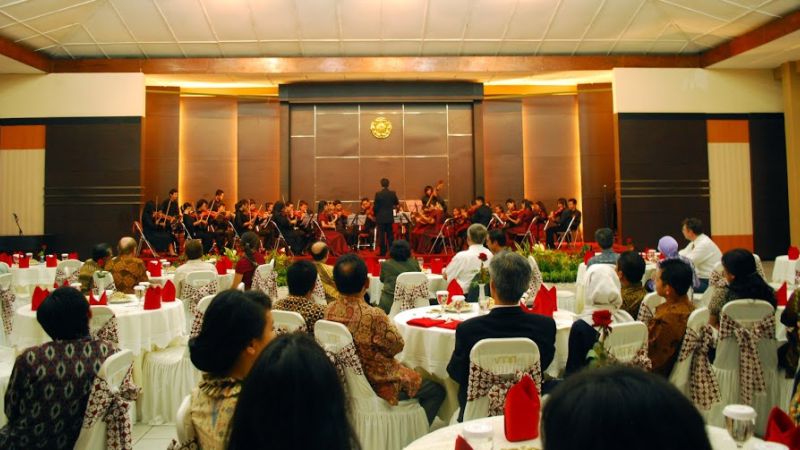The EU-Indonesia Relations Update was divided into two sessions. The first session invited HE Julian Wilson, Ambassador for Delegation of European Union in Indonesia, and HE Retno LP Marsudi, Director General for American-European Affairs, Department of Foreign Affairs of the Republic of Indonesia, to speak about general overview of the EU-Indonesia relations. Ms Marsudi and Mr Wilson shared their perspectives based on their respective positions.
Ms. Marsudi concluded that though the relations may not be as smooth as expected, both regions are working towards stronger cooperation. Meanwhile, Mr. Wilson argued that EU could be Indonesia’s strategic partner in the multilateral world despite Indonesia’s focus on East Asia. Relations between EU and Indonesia had to be held steady as nowadays. Both acknowledged that Indonesia and EU should maintain the existing relations despite some issues to be resolved. Some challenges such as “flight restriction” by the EU and Indonesia’s focus on Asia cooperation should not hinder both regions’ goodwill to cooperate further.
Each speaker presented the discussion with firm and frank conveyance. Responding a question on “flight ban” during the Q&A session, Ms Marsudi shared that she had been directly involved in resolving the issue by real actions focusing on finding the solution, not on the polemic. Regarding a question of EU’s role in international security crisis as in Middle East recently, the discussion found that EU had focused more on its soft power since deciding on the hard one was more complicated given its intergovernmental approach.
The second session invited Mr. Julian Wilson, Mr. Andreas Julin, Head of Economic Affairs of the Delegation, Mr. Benny Bahanadewa, Secretary Director of the America-Europe Directorate, and Mr. Yulius Hasibuan, Director of Operational Air Transport of the Department of Transportation of the Republic of Indonesia. Mr. Julin and Bahanadewa discussed about the Partnership and Cooperation (PCA) of EU and Indonesia. Indonesia has been engaging in various fields of cooperation ranging from trade to money laundering issues to be tackled under the PCA scheme. Trade data between the two regions saw potentials in expanding market in Indonesia. But to some extent there were also business challenges that had to be taken into account by the Indonesian government in providing “irritant”-free business climate. Further cooperation as set in the PCA could materialize sooner in the condition that “flight ban” was lifted by the EU according to Indonesia’s perspective. Despite such challenges, it was recognized as well that EU and Indonesia would have to improve the underperformed trade relations in the years to come.
The third speaker, Mr. Hasibuan, interestingly expressed a frank speech addressing how Indonesia has been “disadvantaged” as well as “benefited” from the ban with more benefits rather than the costs of the consequence. He showed the full-house audience in details what the Ministry of Transportation has adhered to the international aviation standards. His specific address was highly appreciated by the audience since it touched the most current matter in public opinion. The discussion concluded that flight restriction was purely a technical problem hence no politics involved.

